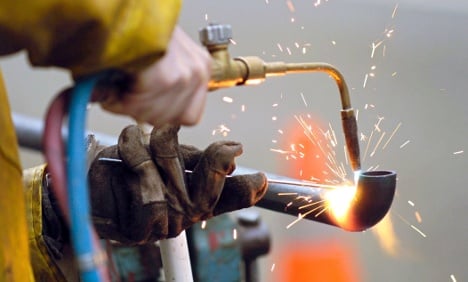Though some 200,000 jobs were lost during the global financial crisis, the two industries continue to recover, president Martin Kannegiesser said.
Between April and November of 2010, some 40,000 jobs were created, and production levels are projected to increase to levels not seen since mid-2008 by the year’s end, he said.
Economic conditions have also become favourable enough for a 2.7 percent metal industry wage increase to come two months ahead of schedule for about half of workers, Kannegiesser said. The salary increases negotiated with industry unions were initially planned for April 1, but many workers will see the extra compensation as early as February 1.
But some sectors are still taking advantage of Berlin’s Kurzarbeit (short work) scheme, through which subsidies allow workers to work shorter hours rather than being laid off.
Currently there are about 3.645 million workers in both industries, 5.7 percent fewer than the 3.645 million who were working during the boom year of 2008.
Meanwhile a new willingness for “careful dealings with one another” has developed among the core workforce as they face an impending skilled worker shortage due to demographic changes, Kannegiesser said.
DPA/DAPD/ka



 Please whitelist us to continue reading.
Please whitelist us to continue reading.
Member comments